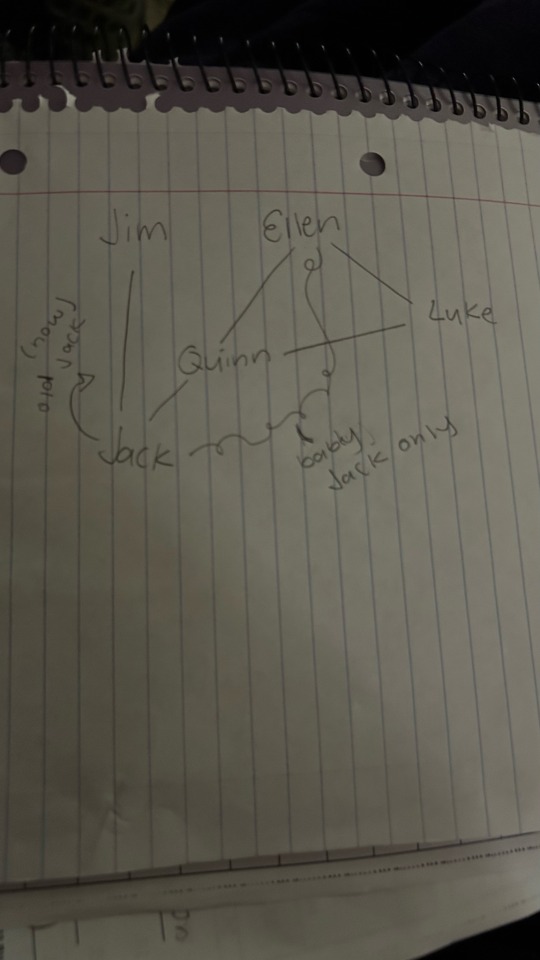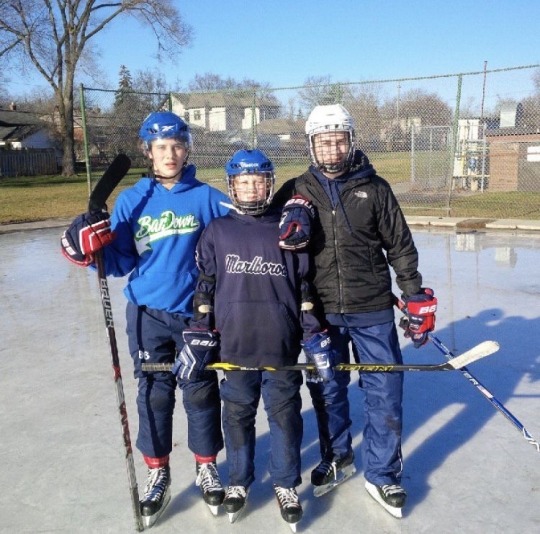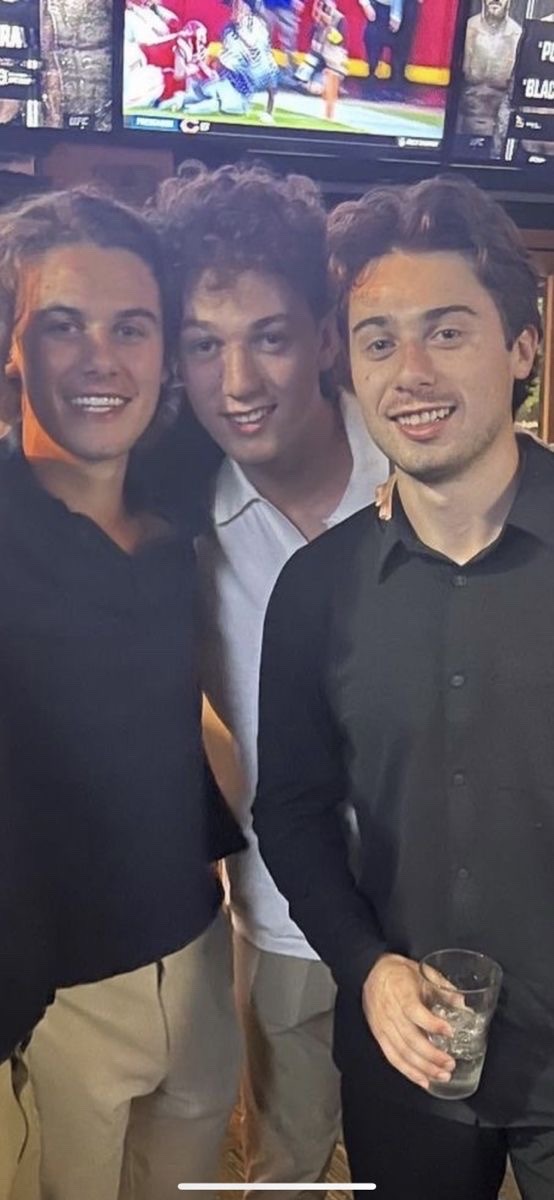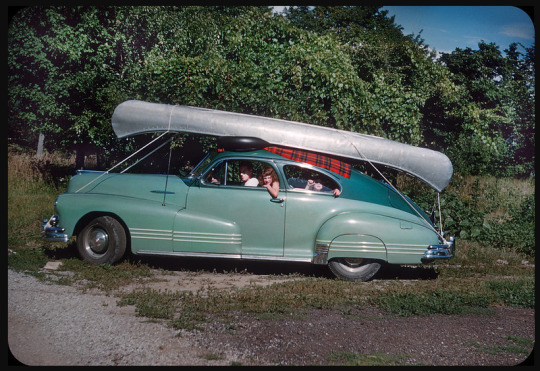#michigan family
Explore tagged Tumblr posts
Text
Cost-Free Activities Suitable for the Whole Family in Michigan

Looking for cost-free activities suitable for the whole family in Michigan? We got you! We've got some fantastic recommendations just for you and Michigan has a wide array of options without straining your wallet. So, get your bags packed, gather your loved ones, and embark on an unforgettable adventure as we explore the best free family-friendly activities in Michigan.
Experience Farm Animals
Come and say hello to the animals while enjoying a free visit to a farm. One place I highly recommend is Calder Dairy and Farm. It's the perfect opportunity to immerse yourself in authentic farm life.
Discover Fascinating Museums
Many museums in Michigan offer free entry, making them a fantastic choice for an educational family outing. In the Ann Arbor area, you can visit the U-M Art Museum (UMMA), the oldest and largest university museum, without any admission fee. Donations are greatly appreciated to support their work.
Explore the Great Lakes and Beaches
Michigan boasts the longest freshwater shoreline of any state, offering numerous beach activities. For a noteworthy destination, I suggest checking out Silver Beach on Lake Michigan. It's a vacation-worthy spot anyway!
Michigan diverse offerings, including stunning natural wonders, captivating museums, vibrant festivals, and scenic drives. Remember, creating lasting memories with your loved ones doesn't require spending a fortune and let Michigan's free family-friendly offerings set the stage for an incredible journey filled with joy, discovery, and togetherness.
~ Explore trade schools and programs in Michigan: https://www.tradeschoolsnearme.co/states/mi
0 notes
Text

Ice fishing on the Saginaw River.
Michigan
1989
#vintage camping#campfire light#michigan#saginaw river#history#fishing#ice fishing#outdoors#family#1980s
216 notes
·
View notes
Text
Michigan to the rest of the Redguns

#g1 michigan#g2 nile#armored core 6#ac6#most functional dysfunctional family I love them#g5 iguazu#g4 volta#g6 red
101 notes
·
View notes
Text

Up north
July, 2023
155 notes
·
View notes
Text
Call me crazy, but Quinn looks like Luke. Luke looks like Ellen, and again Quinn also looks like Ellen. But Jack looks like Jim. And Jack also looks like Quinn. But Jack doesn’t look like Luke. But baby Jack looks like Ellen.BUT old Jack (now) again like I said, looks like Jim.
Idk if this makes since but yeah 👍



but they look drastically different, AND THEY LOOK THE SAME but then again they’re brothers.
#quinn hughes#jocelynscrazyideas#hockey#nhl#umich hockey#jack hughes#luke hughes#hughes brothers#nhl players#family tree#vancouver canucks#nj devils#new jersey devils#Michigan alumni#🍇🍇🍇
126 notes
·
View notes
Text
Prayers for folks in southern Michigan tonight. We were expecting storms and had warning but it fired up much more powerfully than anyone predicted.

(note for those like me who get confused: “mass casualty” does not necessarily mean “mass fatality”, but does indicate significant damage)
#the main bunch of storms is running in a line about 250 miles long from southern Michigan into Indiana and Ohio#my baby sister and her family are just north of a bad patch#(the post is from one of the weather pages I follow on facebook. they always have clear breakdowns.)#also I’ve got friends right in the line of this and they aren’t answering my texts ahhhhhh
108 notes
·
View notes
Text
📍Michigan, USA 🇺🇸
#video#view#paradise#nature#paraiso#natureza#explore#travel#trip#pool#luxury house#luxury home#goals#house goals#michigan#USA#EUA#home garden#garden#cozy#family#rich#black car
72 notes
·
View notes
Text









Michigan Photo Dump 🍁✨❄️
22 notes
·
View notes
Text
Fluent Freshman Chapter 14 is OUT!
I'm back from my vacation so I'm posting between piles of laundry.
#Oh Michigan I missed you#But mostly my cat#14 days with family is a bit too much#I love them but if I didn't talk to them for 4-8 weeks that'd be ok with me rn#Fluent Freshman AU#AFTG OC#AFTG AU#Redacted Smith
31 notes
·
View notes
Text
#outdoors#activelifestyle#birddogs#good dogs#setters#fielddogtrials#game birds#fielddoglife#healthy#pure michigan#llewellinsetters#fielddog#dogs#dogs of tumblr#dogs are family
13 notes
·
View notes
Text

Best caption of my dog wins.
He’s a 5 yr old whippet (miniature greyhound)
#random#dog#dogs#butch#whippet#greyhound#italian greyhound#pets#animals#no filter#cute#adorable#eyes#baby#michigan#natural#photography#family
26 notes
·
View notes
Text

hi! can we all appreciate this picture bc wow. and idk about anyone else but i think they all need to invest in chains. like Quinn would so wear like a gold one, Jack could rock either silver or gold, and Luke would look good with a silver one. idk if it’s just me but yeah.
#quinn hughes#luke hughes#jack hughes#nhl hockey#nhl players#umich hockey#michigan football#michigan hockey#hughes brothers#hughes family
66 notes
·
View notes
Text

Heading to the lake for some camping and canoeing
Michigan
1952
#vintage camping#campfire light#michigan#pontiac#classic cars#family camping#fishing#road trips#1950s
355 notes
·
View notes
Text
Fifty years ago, 15-year-old Sonia Yaco ran for the school board in Ann Arbor, Michigan, one of the youngest people in the country ever to run for a seat on the Board of Education. A member of a group called Youth Liberation, whose platform was founded in 1970, she believed schools would be best run by the people required to be inside them for about seven hours a day, 180 days a year.
Youth Liberation developed a 15-point platform that was far-reaching in its vision. In addition to calling for an end to sexism, sexual discrimination, class antagonism, racism, colonialism, and what they called “adult chauvinism,” the group wanted to form communities outside the structure of the nuclear family, live in harmony with nature, abolish juvenile detention centers and mental institutions, establish global solidarity with youth all over the world, be free of economic dependence on adults, and have the right to their own “new culture,” which included everything “from music and marijuana to free clinics and food cooperatives.”
The 20 or so young people in the group, ranging in age from 12 to 16, wanted “a nationwide movement for youth civil rights, akin to the Black Liberation movement and the growing women's movement,” one of the founders, Keith Hefner, later wrote.
Backed by the radical socialist Human Rights Party, Yaco tells Teen Vogue she delivered stump speeches in a hand-sewn, black ruffled skirt and a black leather jacket. At the time, Ann Arbor, birthplace of the Students for a Democratic Society, was a political hotbed. Youth-led organizations had helped rally support for the 26th Amendment, which was ratified in 1971, lowering the voting age from 21 to 18. With popular books like Children’s Liberation (1973), Escape from Childhood (1974), and The Children’s Rights Movement: Overcoming the Oppression of Young People (1977), the idea of youth liberation was gaining force. Youth Liberation of Ann Arbor distributed their message through an underground newspaper, which was a collection of news items, how-tos, and stories from youth all over the country. Yaco informed her parents that, given her political commitments, having a curfew wasn’t going to work, though she did still do the dishes. She talked to PTA forums and rock concerts of thousands, all with the message of youth empowerment. Each time she arrived to speak, she remembers, there was the question of whether or not she would be allowed on stage. She tells Teen Vogue that a school board member once told her to “shut [her] fat lip.” At another event, she says she encountered labor and civil rights activist Cesar Chavez, who told her, “I’ve been hearing about you.” The resistance against her candidacy was so great that the Board of Education prohibited Yaco from running, instigating a Supreme Court case which she ultimately lost. Still, with 1,363 votes, Yaco says she got the highest number of write-in votes ever received.
When we think of ageism, it commonly refers to older adults, not the other way around. Though many don’t tend to think of young people as oppressed, a recent study published in the Children and Youth Services Review argues that young people are, in many ways, similarly vulnerable to exploitation. Though young people under 18 can be tried in adult court, they are generally not allowed to vote or hold federal office. They are surveilled and policed in schools, medicated and institutionalized without consent, and paid less for their work. In some states, they cannot get vaccinated without parental permission. Many of these issues are particularly acute for youth of color — some as young as preschoolers — whom research has shown are viewed as older and not as “innocent” as their white counterparts. “You're actively teaching children how to deal with an active shooter, but you can't let them have a say in budgeting, you can't let them discuss curriculum,” says Yaco. While rhetoric about the need to “save the children” is rampant, much public policy in the United States — from the struggling childcare system to gun violence in schools — reveals otherwise. The U.S. is the only country in the United Nations that hasn't ratified the Convention on the Rights of the Child, a historic human rights treaty.
The same justifications historically used to deny other groups their basic freedoms are still applied to youth, explains scholar Mich Ciurria. “The popular narrative about children — as spoiled, ungrateful, and mentally ill — mirrors the popular narratives about 1960s housewives, Black working mothers, and disabled people,” she wrote in a recent essay. To be “childish,” after all, is a derogatory term. As psychologist Robert Epstein argues in an article for Scientific American, what is commonly chalked up to an innate “irresponsibility” or “laziness” — the idea of the unformed teen brain — may simply be a response to living under the repressions of modern society. A 1991 study reviewing research on young people in 186 preindustrial societies — more than half of which had no word for “adolescence” — revealed little evidence of the kind of antisocial teen behavior found in the West, according to Epstein’s summary. In his research for the piece, Epstein found that, based on surveys he conducted, “teens in the U.S. are subjected to more than 10 times as many restrictions as are mainstream adults, twice as many restrictions as active-duty U.S. Marines, and even twice as many restrictions as incarcerated felons.” Young people have long been at the forefront of liberation struggles. Youth played a big part in the Civil Rights movement, which would inspire other movements that followed. In 1955, nine months before Rosa Parks became famous for refusing to give up her seat on a Montgomery, Alabama bus, a 15-year-old named Claudette Colvin was arrested for the same action. Galvanized by the Civil Rights movement, the National Indian Youth Council, formed by a group of young people in 1961, organized “fish-ins'' in support of land-use rights. The 1963 Birmingham Children’s Crusade saw more than a thousand young people, some as young as seven, attacked and jailed after taking to the streets in peaceful protest. In 1972, the Gay International Youth Society of George Washington High School, a group of students of color in the Manhattan neighborhood of Washington Heights, formed one of the first gay-straight alliances on the basis of student civil rights.
By 1979, Youth Liberation of Ann Arbor had disbanded, and the idea of youth liberation gradually faded from popular consciousness, but activists today are still organizing around age as one form of discrimination in a larger system of interlocking oppressions. For Margin Zheng, the former president of the National Youth Rights Association (NYRA), a group founded in 1998, youth liberation is deeply intersectional. “Young people are BIPOC, young people are queer, young people are of various genders and of no gender, young people are disabled, young people are poor, young people are immigrants and migrants — just like older people,” they write as part of their principles of anti-ageism. Zheng, the child of conservative Chinese immigrants, felt constrained both by their family life and their experience in school. “I secretly longed to be homeschooled and have the freedom to do my own thing, but my parents did not believe in nontraditional education,” they tell Teen Vogue. They attended their first school board meeting in ninth grade and soon began to question why students didn’t have more of a voice. “People think that they can make sweeping generalizations about people of a certain age, but you can’t generalize about youth just as you can’t generalize about people of a certain race, gender, etc.,” they say. Ashawn Dabney-Small, who ran for Boston City Council as an 18-year-old and former vice president of NYRA, became involved in youth activism to address the issues that affected him. “It's not about advocating, it's about speaking from your experiences,” says Dabney-Small, who has experience with the foster care system and the effects of poverty. “That's why I got involved in certain issues, policies that revolve around my life because it's literally my life.” As an activist, Dabney-Small worked on campaigns against gun violence. Recently, he advocated for Congresswoman Ayanna Pressley’s bill to lower the federal voting age to 16 — a move that could revolutionize American politics. “Schools and families are the places where we (young people) begin to feel that we have to struggle for our freedom,” Youth Liberation Acnn Arbor wrote in 1972. (One of the indirect results of Yaco’s campaign was the founding of the alternative Community High School that same year.)
Indeed, many activists today — in movements from unschooling to family abolition — see the institutions of school and family as structures that should be radically reimagined. From Indian Boarding Schools to the school-to-prison pipeline, unpaid domestic labor to assaults on queer chosen families, critics say schools and certain family structures have long been used as tools of oppression for women, queer people, and people of color. In a utopian world, Zheng says, people wouldn’t be judged and set apart by age. Instead, they envision more intergenerational spaces where younger and older people — of all races, genders, sexualities, and abilities — can learn and grow together. “Just as young people would be empowered to cultivate and apply their strengths to work they find meaningful, older people would be embraced in their own personal growth, knowing that learning and unlearning are processes that happen all throughout the lifespan,” they say. Each person would be recognized for their own unique potential. The vision is not unlike the original platform outlined by Youth Liberation more than 50 years ago. As Zheng says, “There would be no prisons, no police, and no schools, only communities of lifelong learning, caring, and joy.”
#undescribed#resources#youth liberation#history#black liberation#bipoc#michigan#socialism#abolition#education#civil rights#anti racism#family#autonomy#queer#trans#intersectional feminism#signal boost#reaux speaks
52 notes
·
View notes
Text
((decided that mage!ieuan is a multicultural baby so i dont have to be consistent with uk/us spellings neerneer *blows raspberrry*
#ooc#((i might be sticking them in fuckin. michigan. but who said they/their family started off there. not me i didnt say it#((so much energy spent catching myself with ukisms on my other characters. well no more! not here i say!
9 notes
·
View notes
Text

Happy Monday tumblrs! It’s also garbage day here but that’s not why I’m excited 😂. I get to go to a cookout at my daughter’s house and the grandkids will be there too. Yay 😃
58 notes
·
View notes